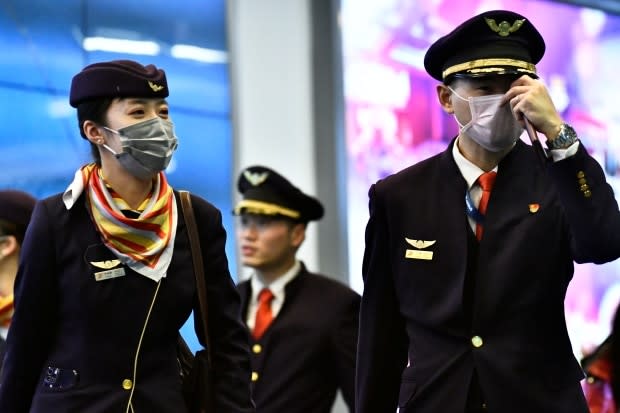In China, people wonder how open government is being over coronavirus
The 2003 outbreak of severe acute respiratory syndrome (SARS) left 44 Canadians dead, but it wasn't documented on social media. That's because Facebook, Twitter and YouTube didn't exist back then.
"Social media adds a whole new layer to all of this messaging that's out there that I didn't have to deal with when I was reporting on SARS," Maureen Taylor said today on The Weekly with Wendy Mesley. Maureen was CBC's The National health correspondent who reported on the deadly outbreak back in 2003.
Fake news about the coronavirus is now flooding the web, and many are taking to social media to discuss the virus, especially in China.
"It is indeed helping information to flow within the country," said Zhaoyin Feng, Washington correspondent for the BBC's Chinese Service.
Double-edged sword
But Feng also called it a double-edged sword.
"Social media has also become a hot bed for misinformation."
Every day, Feng says she opens her Weibo and WeChat to find an abundance of headlines about the outbreak. But there's almost no way to know whether any of it's true.
Officially, people are being told not to panic. Yet, horrifying videos, some of which include doctors and patients collapsing on the hospital floor, are circulating. One viral post claims that setting off fireworks can sterilize germs in the air. That spread so widely, Chinese officials had to publicly debunk it.

According to Feng, some Chinese people are criticizing their own government on social media for not being more open with information about the coronavirus. During the SARS outbreak, it wasn't possible to exert pressure via social media.
"There was a lot of criticism against the local authority of Wuhan, saying they delayed the efforts of combating the virus by covering up some information at the early stage," said Feng. "It's also making it hard for the Chinese government to cover up the story."
With Twitter banned in China, residents must opt for Weibo and WeChat — messaging platforms known to be monitored by the Chinese state.
Online censors are busy scrubbing material the state deems "too alarming" and, according to AFP news, police arrested eight people for posting what it calls "rumours" about the virus.
Feng said many in China are asking one question:
"Why, why couldn't something be done earlier?"
How open has China been about coronavirus?
On Thursday, China's President Xi Jinping attempted to reassure the international community China was being open.
"China stands ready to work with the international community to effectively curb the spread of the pneumonia cases caused by a new strain of coronavirus to uphold global health security," he said.
Initially, China was praised for its transparency in combating the virus, something that didn't happen during the SARS outbreak back in 2003.
But as more information about the virus unfolds, people are starting to question the Chinese government's initial statements.
"Unfortunately now, it's looking a little bit like they weren't as forthcoming as they should have been," said Taylor.
"They initially said there was no human-to-human transmission... and that it all originated from an animal in the market giving it to somebody who worked there. And that's not true. They said there were no health-care workers affected ... Well now we know there were 14 health-care workers affected."
"It's starting to feel a lot like SARS as far as what the Chinese are saying," said Taylor.
Now working as a physician assistant at a local Toronto hospital, Taylor says she is confident the disease will be contained quickly "if we have transparency and the right information coming out."

